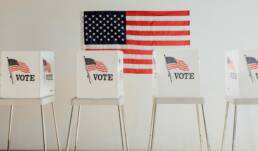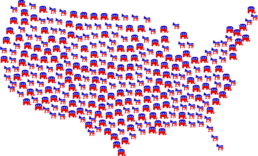MPSA Blog
Practical Tips for Online Student Engagement
By James Steur, Ph.D. Candidate, University of Illinois at Urbana-Champaign Since the spread of COVID-19, many universities recognize that online teaching is here to stay. However, the online teaching environment poses its own set of unique challenges around the instructor’s teaching presence and…
Thoughts on the Future of Political Science
by Michael A. Smith, Professor of Political Science, Emporia State University Well, #MPSA2022 is in the books. From my perspective, the first in-person MPSA conference since 2019 was a success. As I noted in my previous blog post, the political science conference is likely to see permanent changes…
Define Your Success: A Roundtable on Surviving Graduate School
By James Steur, Ph.D. Candidate, University of Illinois at Urbana-Champaign Graduate school is an exciting time for students to explore their research interests and develop as a scholar. However, the experience also poses its own set of challenges: an intense workload, understanding statistical…
The Future of the Political Science Conference
by Michael A. Smith, Professor of Political Science, Emporia State University The MPSA’s in-person conference is back! After being canceled entirely in 2020 and held virtually in 2021, this year’s conference has returned to Chicago’s Palmer House Hilton. Old haunts like the Parlor, State and…
Conference Smarter Not Harder: An Interview with Dr. Gustavo Diaz
By James Steur, Ph.D. Candidate, University of Illinois at Urbana-Champaign
 In this blog post, I’m interviewing Gustavo…
In this blog post, I’m interviewing Gustavo…
First Things First When Teaching Civic Education
by Michael A. Smith, Professor of Political Science, Emporia State University Between 10 and 15 years ago, Political Science experienced a renewed interest in civic education. The National Conference on Civic Learning and Democratic Engagement (NCCLDE) produced a report in 2012 featuring numerous…
Think Congressional redistricting is hard? Wait until we get to state and local offices.
by Michael A. Smith, Professor of Political Science, Emporia State University Congressional redistricting is in the news–and in my inbox. Every day, I get a dose of emails from both sides reminding me of the critical importance of redistricting. Most of these focus on Congressional districts,…
Remembering Burdett Loomis
by Michael A. Smith, Professor of Political Science, Emporia State University
 Dr. Burdett “Bird” Loomis died in late…
Dr. Burdett “Bird” Loomis died in late…
Learn how Political Science Students are Improving Wikipedia
By: Dr. Helaine Blumenthal, Wiki Education For the past several years, MPSA has been partnering with Wiki Education to improve Wikipedia’s coverage of topics related to Political Science. In an era where misinformation and disinformation are rife, this initiative has taken on new meaning as well as…
Do-It-Yourself Redistricting and What I Learned
by Michael A. Smith, Professor of Political Science, Emporia State University I redistricted. Here is what I learned. First, the basics. Redistricting no longer requires sophisticated computer software that only legislative research departments can afford. For more than 10 years now, computer…




